Dead Man’s Trail Interview - Leaving The Oregon Trail for Dead
Pie for Breakfast Studios’ delicious name may taunt those of us with slow metabolisms, but we’ll battle through the lip-licking to get at its upcoming zombie survival road game Dead Man’s Trail. Currently on Kickstarter and targeting PC, Mac and Linux as well as tablets, it has you driving zombie-pancaking vehicles across the country, raiding randomly generated towns for loot and supplies while trying to keep your team happy, and one step ahead of the undead. Founder Chris Totten answered a few questions for us as he seeks to rally some love around his crowdfunding efforts.
The Oregon Trail is something of a cult classic; what fascinates you most about that game and is it accurate to call Dead Man's Trail a spiritual successor?
A few years ago I was out to dinner with my parents and some college friends when we got to talking about The Oregon Trail. I can remember my mum being really surprised that, while we were all from different areas, we all knew a lot about this game and could quote lines from it ("you have died of dysentery") despite it not being on the same commercial scale as a Mario or Zelda-type franchise. I think there was a period in the 80's and 90's where The Oregon Trail was in every elementary and middle-school computer lab in the USA, so a lot of people have fond memories of it.
The idea for Dead Man's Trail itself happened a few years ago when a family member said to me, "hey, you know what? There should be an Oregon Trail game with zombies!" I gathered a team and we got to work. We knew at this time that there was another game called Organ Trail (and it's iOS version, Director's Cut) and that it had faithfully recreated the 1984 version of Oregon Trail with zombies, so we saw DMT as an opportunity to make changes to the formula like giving each party member a job rather than just the team leader, and for adding some new features. We're hoping that fans of previous games in this style see ours as a next step.
What do you think it is about survival games that is proving so popular at the moment?
Most modern games have a survival component as the metaphor of "dying" is a popular one for creating drama. Back in arcade games, you would have to step away from the machine or pay more money if you died. Likewise in older console and computer games, you'd have to start over from the beginning if you lost all of your lives. Survival games take that drama and turn it into a more personalised conflict between a player character and itself, or with the game's environment, rather than just with an enemy character. Add to this formula the real-world economic difficulties of the last few years and playing survival games turns into an effective way to explore and cope with the emotions some people have been dealing with in real life. This is a point of view shared by a lot of historians and sociologists on the role of games in human culture.
The management aspects of the travel mode component are intriguing; how deep does this aspect of the game go?
Our goal, and this is based on a common criticism of Oregon Trail games, is to make travel mode more than just a screen where you wait for events to happen. We're hoping to give players some interesting things to do as their vehicle goes from landmark to landmark. What we've shown so far in trailers and screenshots is character management, vehicle management and on-trail hazards.
We're concentrating on our manageable resources: food, medicine, ammo, fuel, auto parts and the condition of party members themselves, as a nucleus for building dramatic scenarios. For example, ammo will be used both as ammunition for weapons and as currency for buying items. The goal is to put players in interesting dilemmas for how they choose to utilise items. Beyond that I can't reveal too much more yet as we're not ready to show it. Interested fans will have to watch the Kickstarter page for updates.
I see there is morale meter for your party members, how does this mechanic work?
Good eye. That's a hint to one of those additional features mentioned in the last question that we sprinked through the Kickstarter trailer and the page, but that we haven't shown at length. What I can tell you right now is that we're adding conditions that can affect player characters' moods and that there are consequences for allowing morale to become too low. This system will require players to take lots of risks and perform well as they play.
What aspects of the towns you came across are randomly generated? How will you make sure they stay interesting to explore and what kind of loot will you uncover?
I have a Masters degree in Architecture and am soon publishing a book on level design, so I am a bit of a stickler when it comes to having well-designed levels in our games. The key with DMT's towns was to balance designed areas of interesting gameplay with technical efficiency for our target devices. We decided the best approach was to design individual "tiles," similar to rooms in a Zelda dungeon, then have the game randomly assemble tiles into a town when the player starts looting.
The scene transition you see during Navjot's part of the Kickstarter video (see below) was a demonstration of that system. We're really thinking of towns as dungeons - the town is the dungeon itself and the city blocks are rooms with cool things to do - so it makes design a bit easier than trying to do urban planning that has to be both fun and cohesive over a big territory.
Can you talk about how you have programmed the A.I. to make the bartering mechanic engaging?
This is another of those "we can't reveal too much" questions, but right now we're tackling it from the dual-use resource perspective: managing a resource becomes more dramatic if there are different factors at play. Like I said earlier, ammo in DMT is an example of this: it serves both as ammunition for guns and as currency. Creating dilemmas for the player is our goal, so anything we can do to make that happen, environmentally or through character interaction, is something we want to emphasise in the game.
What kind of activity to you have planned for interested gamers during the Kickstarter campaign?
For many of us this is our first Kickstarter campaign, so we're learning that it's a full-time job as much as making the actual game (not to mention our actual full-time jobs...) Communicating with your audience is an absolute must during these campaigns because you're selling yourself as a studio as much - if not more so - than the product itself. You're trying to tell people, "hey, we're real. We're listening. We're here to bring you the best experience we can!"
Some of the things we have planned include the PFB Game Dev Show on Twitch, where a member of our team will work on DMT live for viewers to see. That is going to be Mondays at 7pm USA EST on our Twitch channel. We're going to use that as a venue not only to reach out to the public, but also to reveal new information about the game and even show people how games are made. Likewise, we're planning on a few playtests on that channel.
We're also constantly coming up with new reward tiers to entice backers and will be updating things regularly, so it's definitely going to be an interesting page to watch as things develop. We've even added a tier for people who are not totally ready to pull the trigger on fully backing our game - for donating $1, backers can submit a sentence to be included in an in-game document that can be discovered by players. This way, undecided folks can have a creative input into the game and get the benefits of receiving backer update notifications as they come in.
What is the biggest challenge you have faced so far as an indie?
The biggest challenges of being an indie are definitely time management and money. Our team isn't made up of full-time indies right now, we're all people with other full-time jobs, so having time to go to work then come home and put in a few hours of game making time can be difficult. Even for someone like me whose day job is in the games industry, this can be a balancing act. At the same time, it shows how strong our passion for making this game is.
The other big hurdles of being indie comes from discovery. In the mobile market especially, having your game discovered can be very difficult because it's such a flooded marketplace. We are fortunate to be working in a time where indie games are more in the public consciousness thanks to Indie Game: The Movie and some commercially successful titles, but for every celebrity game developer there's 500 that have yet to be noticed. I think Rami Ismail from Vlambeer said it best when he said that the definition of "indie" meant that you are developing games in a community atmosphere. Pie For Breakfast has a number of creative collaborations outside of DMT that have helped us reach this point. We're not ready to show those off yet, but you readers should know that there's more to expect from us.
You can jump on the Dead Man’s Trail Kickstarter right now to check out more, follow development and, of course, donate funds. Then while it is being made you can pick up our game discovery app Grab It Indie Games Magazine here, and open the door to hundreds of fantastic iPad gaming experiences you can enjoy right now.
References:
- Organ Trail: Director’s Cut


